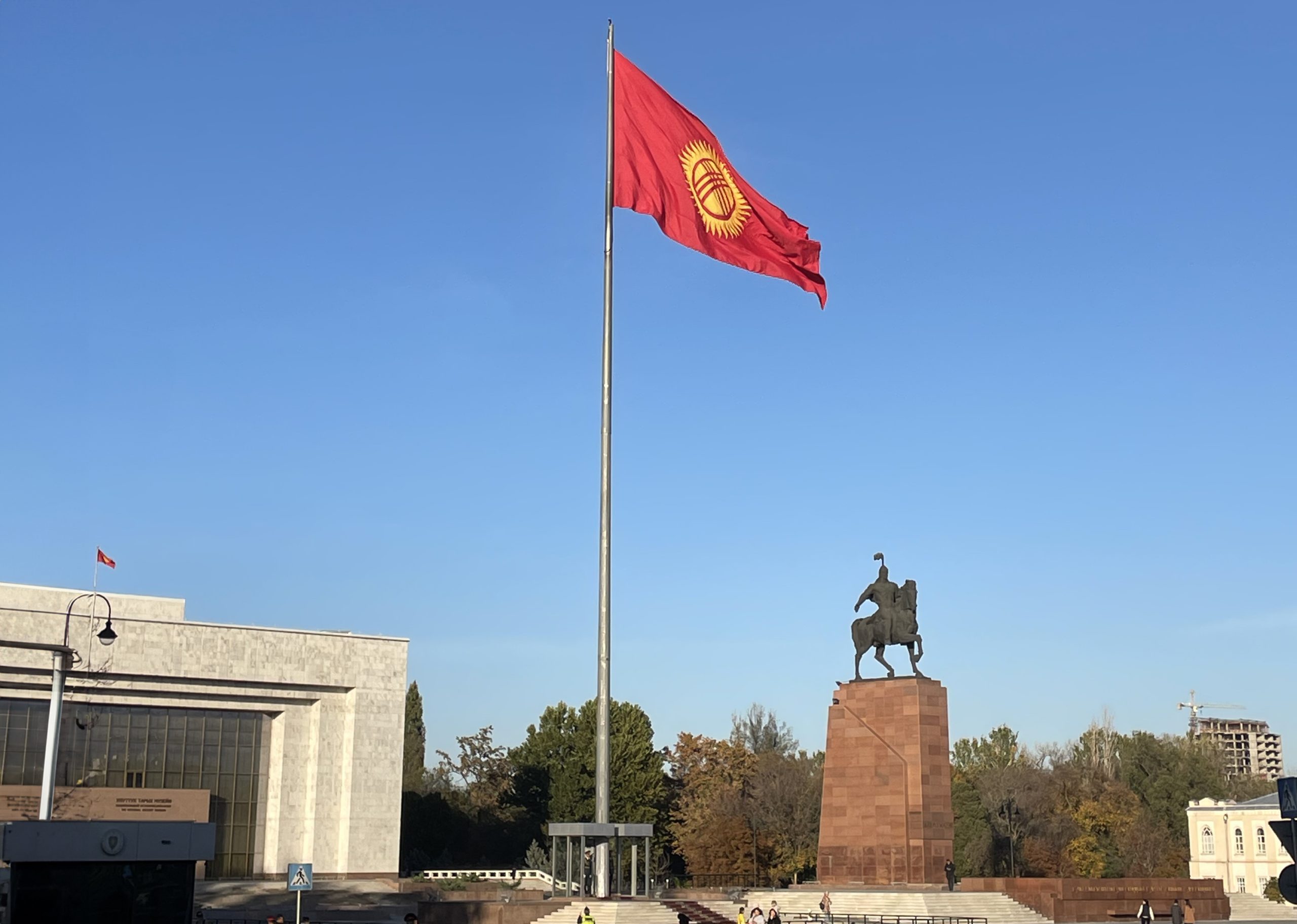Kyrgyzstan: Proposal to reinstate the death penalty violates human rights obligations and fails to protect women

Kyrgyzstan has taken a controversial step towards reinstating the death penalty. President Sadyr Japarov has instructed his administration to prepare amendments that would reintroduce capital punishment for crimes against women and children, despite this penalty having been abolished in 2007. The proposed legislation has been published on the portal for public discussion of draft regulatory legal acts of the Kyrgyz Republic.
On 27 September 2025, 17-year-old Aisuluu Mukasheva was kidnapped, raped, and brutally murdered. Her death has shaken Kyrgyz society, sparking widespread grief and anger. Social media has been flooded with demands to strengthen protections against gender-based violence (GBV) and femicide, with some calling for the return of the death penalty.
However, we, the undersigned organizations, strongly oppose reinstating capital punishment.
While it is essential to combat violence against women, the death penalty is not the solution. Global evidence shows that harsher punishments, including executions, do not act as effective deterrents. Instead, reinstating capital punishment risks further abuse in a legal system already plagued by corruption, impunity, and weak rule of law. Moreover, such a move would directly violate Kyrgyzstan’s Constitution, which explicitly bans the death penalty under Article 25, and breach its international obligations, in particular under the Second Optional Protocol to the International Covenant on Civil and Political Rights, which requires ratifying states – including Kyrgyzstan – to abolish the death penalty in all circumstances. Reintroducing the death penalty would reverse the progress made since a moratorium on executions was introduced in 1998 and capital punishment was abolished in 2007, placing Kyrgyzstan among a shrinking group of countries that retain this punishment. It would also seriously damage its international reputation and its relations with key partners.
The European Union and the Council of Europe recently reaffirmed their unequivocal opposition to the death penalty, stressing that it is inhuman and degrading, fails to deter crime, and makes judicial errors irreversible. Similarly, the United Nations High Commissioner for Human Rights underscored that the death penalty has no place in 2025, as it assaults human dignity, brutalizes societies, undermines justice systems, and has proven futile in preventing crime.
Media reports from Kyrgyzstan show that the authorities have consistently failed to address the root causes of GBV—police often fail to register victims’ complaints, do not pursue immediate probe into sexual abuse accusations, and the abusers face leniency from the judicial authorities. Moreover, the current regime has taken a number of repressive actions that suppress women’s rights. Among them, harassment and retaliatory prosecution of prominent female journalists, activists, and regime critics—actions that publicly display the government’s disregard for the rule of law and the rights of women. These and other developments in Kyrgyzstan suggest that the proposal to reinstate the death penalty appears more a populist measure than a genuine effort to ensure accountability for violence committed against women and children.
The absence of fair trial guarantees and effective mechanisms to prevent torture aggravates the risks associated with the reintroduction of the death penalty. Kyrgyzstan has already taken concerning steps backwards in the protection of human rights. On 25 June 2025, Parliament voted to abolish the National Centre for the Prevention of Torture (NCPT)—an independent oversight mechanism created under the Optional Protocol to the Convention against Torture (OPCAT)—and to transfer its mandate to the Ombudsperson’s Office, which lacks full institutional independence. Despite protests by civil society and international experts, this decision was subsequently signed into law by the president. Reports of torture, abuse, and even deaths in detention facilities persist, with little accountability.
Moreover, public trust in state institutions is already low, while perceptions of corruption remain high. According to the Index of Perceived Corruption in Executive and Local Government Bodies for the first half of 2025, the Ministry of Internal Affairs scored just 28.9 out of 100 points, reflecting widespread public belief in corruption within the institution. At the same time, the Index of Public Trust shows equally weak results: trust in the Ministry of Internal Affairs stands at 38.6 points. The Ministry of Justice is excluded from the corruption perception index, yet its trust score is also low at 39.8 points. According to the 2024 Transparency International Corruption Perceptions Index (CPI), Kyrgyzstan scored 25 out of 100, ranking 146th out of 180 countries, compared to 26 points and 141st place last year.
We, the undersigned organizations, strongly condemn the attempt to exploit the recent tragedy for populist purposes.
The unbearable pain of Aisuluu’s family must not be instrumentalized for political gain. Their tragedy reflects the systemic failures that continue to put women and girls at risk. We urge the Kyrgyz authorities to refrain from reinstating the death penalty, which will run counter to the country’s constitutional and international commitments and would not enhance the safety of women and girls.
Instead, the government must acknowledge and address the systemic problems that continue to put women and girls at risk. In Aisuluu’s case, her relatives reported that police were initially reluctant to take action and only began the search under pressure, with family members themselves identifying the suspect’s car. This is not an isolated incident—repeated failures by law enforcement to respond promptly and professionally have allowed violence against women to escalate with fatal consequences across the country. In 2021, Aizada Kanatbekova was abducted in broad daylight. Two days later, her body was found strangled in a car outside Bishkek. Her mother later reported that police had laughed off her plea for help, telling her she would soon be “dancing at her daughter’s wedding.” The public outrage that followed led to the dismissal of the Bishkek police chief and disciplinary measures against several senior officers. Similarly, in May 2018, Burulai Turdaly kyzy, a young woman abducted twice by the same perpetrator, was murdered inside a police station after officers left her alone with her kidnapper. Her death became a symbol of the authorities’ gross negligence and the systemic failures that continue to endanger women’s lives in Kyrgyzstan.
We call for comprehensive systemic reforms to protect women and girls from violence, including:
- Establishment of stronger prevention systems, including crisis centers, hotlines, and shelters accessible across the country;
- Training of first responders—police, medical professionals, and social services—to respond promptly and sensitively to GBV cases;
- Accountability for law enforcement failures, ensuring timely and effective investigations of all crimes;
- Prosecution and punishment for perpetrators with penalties corresponding to the severity of the crimes;
- Sustained political will, backed by adequate resources, to protect women and girls—not only when convenient for political purposes.
Only through genuine systemic change can Kyrgyzstan ensure that women and girls live free from violence and fear.
Signed by the following organisations:
Freedom for Eurasia
International Partnership for Human Rights (IPHR)
The Norwegian Helsinki Committee
Araminta
International Federation for Human Rights (FIDH)
People in Need (PIN)
Civil Rights Defenders


